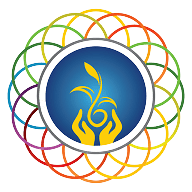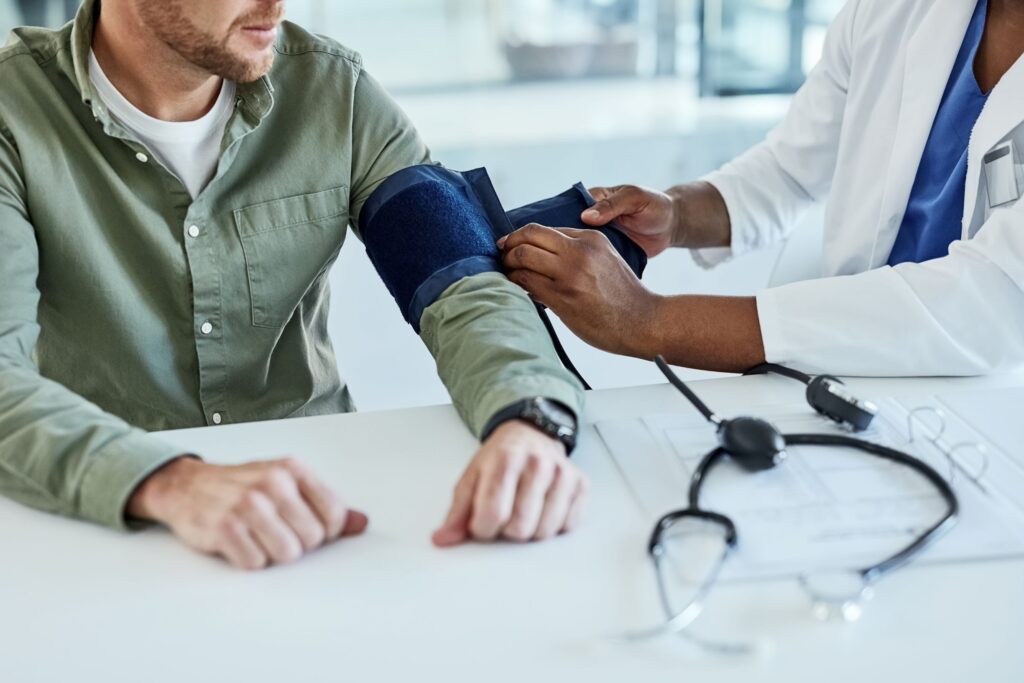Naturopathic Solution to boost Men's health
- Address the underlying factors causing prostate issues
- Diminish symptoms associated with hormone imbalances, like acne
- Replenish energy levels
- Boost libido
Let’s examine some factual information:
• Research indicates that a significant number of men succumb to late treatment for chronic diseases and unhealthy lifestyle choices compared to women.
• While men report fewer cases of stress, depression, and anxiety than women, suicide rates suggest that men are 1.8 times more likely to commit suicide than adult women.
• In most developed countries, men have a lower life expectancy compared to women.
• Approximately 57% of the global population aged 65 and above consists of women. Women are more inclined to visit their general practitioner or primary healthcare provider for health concerns, both in Canada and other developed nations.
If we infer anything from these facts, it is that men should readily seek treatment and address existing health issues. As lifestyle choices often pose the greatest concern for adult men, consulting with a naturopathic doctor who specialises in personalised recommendations for diet, exercise, and stress management can be highly beneficial.
Why is Men’s Health Important?
While individuals may approach seeking treatment for diseases differently on a personal level, diseases such as heart disease, stroke, diabetes, and cancer do not discriminate. Prompt intervention from healthcare professionals at the right time is crucial in preventing these diseases from hindering daily life.
However, this becomes challenging. Despite being more prone to using alcohol, cannabis, and nicotine products like cigarettes and vapes (as indicated by the Canadian Tobacco and Nicotine Survey), men are also less likely to have insurance coverage and regular doctors.
In other words, not only are men more susceptible to chronic diseases due to unhealthy lifestyle choices, but they are also less likely to be diagnosed and receive timely treatment. This points to a lack of awareness regarding men’s health in society, which can have catastrophic consequences.
As healthcare practitioners, we always advise our patients to listen to their bodies and seek intervention when something feels “off.” Regardless of how healthy you may seem, regular checkups are always wise to detect diseases before they develop and become severe. Specific conditions like prostate cancer require timely intervention, and relying solely on external symptoms to monitor your health is unlikely to lead to an early diagnosis.
Whether you’re male or female, being proactive rather than reactive about your health concerns is crucial. It’s worth mentioning that naturopathic doctors consider the body as a whole, enabling them to identify issues that may not be addressed through external examinations.
A consultation with a naturopathic doctor is highly comprehensive and personalized, lasting up to 90 minutes. Your doctor will delve into your medical history, lifestyle choices, and family background to uncover any potential causes of health concerns. We encourage patients to address any reservations they may have about undergoing a check-up so they can prioritize self-care.
Conditions Specific to Men That Benjamin Can Address:
Male Infertility
Fertility issues are estimated to affect one in six couples in Canada, with the cause being attributed to the man in at least three out of ten cases . This can be due to factors such as reduced sperm production, poor sperm quality, hormonal imbalances, blockages, undescended testicles, prostate inflammation, or sexually transmitted infections.
We understand the emotional difficulty associated with infertility, but we encourage our patients to view it as an opportunity to improve both reproductive and overall health. Naturopathic treatments have demonstrated high effectiveness in addressing fertility issues arising from hormonal imbalances and lifestyle choices. Since male infertility can also be linked to sex-neutral concerns related to tobacco and alcohol use, weight fluctuations, early or late puberty, chronic illnesses like diabetes, or past treatments for cancer or other diseases, a naturopathic consultation can help identify the root cause of infertility and manage overall health.
Naturopathic treatments can effectively address various symptoms related to men’s fertility, including:
Inability to engage in sexual activities
Swollen or painful testicle area
Anosmia, which refers to the loss of smell
Frequent respiratory issues
Gynecomastia, characterised by abnormal breast growth
Low sperm count
Signs of hormonal imbalance such as acne or reduced body hair
Low energy levels in men are often associated with low testosterone, also known as Low-T. Overweight individuals or those dealing with diabetes are more prone to experiencing Low-T. Research on low testosterone indicates that 30% of overweight men suffer from Low-T compared to 6.4% of those with a normal weight (source).
Although naturopathic doctors (NDs) do not provide testosterone therapy, they can assist in naturally correcting testosterone levels through naturopathic medicine and lifestyle recommendations. For instance, your doctor may suggest supplements like Ashwagandha, a herbal remedy known to boost testosterone levels while offering other benefits.
Naturopathic consultations can also help manage other causes of low energy, including poor diet, insomnia, depression, thyroid disorders, and iron deficiency. Additionally, certain naturopathic solutions for insomnia and sleep apnea can contribute to improving energy levels.
Please note that the causes of low energy can vary, and accordingly, the treatments will differ. The initial naturopathic consultation will enable our doctors to understand your unique concerns and develop a comprehensive treatment plan tailored to your needs.
In addition to the specific symptoms associated with each cause, low energy can manifest as:
Daytime sleepiness or difficulty sleeping and waking up on time
Brain fog or difficulties with concentration
Loss of motivation
Feeling stuck:
Naturopathic therapies have the potential to boost men's health
Decreased Libido or Impotence
A decrease in libido or impotence, which refers to the loss or decrease in sex drive, may not necessarily be related to relationship issues. Underlying health conditions such as erectile dysfunction can also be the cause. In some cases, this reduction in libido may be temporary and attributed to stress and fatigue. It’s important to note that “normal libido” varies significantly among men, influenced by various factors.
Libido also decreases with age, primarily due to sexual dysfunction (SD). Research indicates that 52% of men between the ages of 40 and 70 report symptoms of SD (source). Mental health disorders like depression and anxiety, as well as substance abuse, can also contribute to decreased libido or impotence.
Related Symptoms & Signs
Signs of depression, such as feelings of emptiness, difficulty focusing, disrupted sleep patterns, and loss of interest in hobbies and social interactions.
Symptoms of anxiety, including trembling, heightened worry, and anxiety attacks.
Fatigue.
For sleep-related concerns, naturopathic solutions focused on sleep hygiene can be helpful.
Prostate Problems
Benign Prostatic Hyperplasia (BPH) refers to the enlargement of prostate tissue or the growth of the prostate itself. While the prostate is expected to double in size during puberty and again around the age of 25, abnormal growth can indicate BPH. When the prostate becomes too large, it can put pressure on the bladder and cause urinary issues.
The likelihood of developing BPH increases with age. Approximately 50% of men in the 51-60 age group experience BPH, and this percentage rises to 90% among men over 80. Prostate cancer, the fourth most common cancer in men, affects 1 in 9 men during their lifetime, with 99% of cases occurring in men over 50. Risk factors for prostate cancer include aging, family history, and genetics. Prostatitis, an infection and inflammation of the prostate, tends to affect younger and middle-aged men, with a lifetime occurrence rate of 5-10%.
Natural remedies like botanical medicine, nutritional supplements, and acupuncture have proven effective in treating these prostate conditions, and a combination of these approaches may be prescribed based on individual circumstances.
BPH Symptoms
Frequent urination, particularly at night
Difficulty initiating urine flow
Sensation of incomplete emptying of the bladder
Urgent urges to urinate, even with minimal urine output
Nocturia, which refers to waking up multiple times during the night to urinate
Prostatitis Symptoms
Dysuria, characterized by a burning sensation during urination
Bloody or cloudy urine
Painful ejaculation
Discomfort in the genital region
Increased frequency of urination or urgent urges to urinate
Flu-like symptoms
Abdominal and lower back pain
Hormonal Acne
Hormonal imbalances can lead to acne, even beyond puberty, often persisting until the age of 30 or later. Natural acne solutions can be effective in treating this condition.
Fluctuations in hormones, especially testosterone in men, can cause increased sebum (oil) production, leading to clogged pores and acne breakouts. Genetics, environmental factors, and lifestyle choices also play a role. Hormonal acne that doesn’t respond to over-the-counter medications may require additional interventions. Understanding hormone levels and implementing natural solutions can help regulate testosterone and improve the condition of the skin. Some individuals have more sebaceous glands on their chests, shoulders, and backs, making them more susceptible to hormonal acne due to minor hormonal fluctuations. Incorporating natural solutions and supplements for healthier skin can help regulate sebum production.
Identifying Hormonal Male Acne:
Raised, red, and tender bumps
Pus-filled whiteheadsCysts, which are deep pimples without an opening, typically found on the chin, cheeks, jawline, and neck.
Depression
Due to societal misconceptions surrounding men’s mental health, many cases of depression go untreated. Men are often expected to suppress feelings of resignation or helplessness, which can manifest as anger and aggressiveness. However, it’s important to recognize that a lack of dopamine can cause depression, and this shortage can affect individuals of all genders.
Although women are more likely to be affected by depression than men according to research surveys, it’s important to note that depression is often underdiagnosed among men (source), which may skew the figures. Men are sometimes told that therapy is only for women, perpetuating harmful gender stereotypes. However, it’s crucial to understand that treatment is essential for everyone.
Naturopathic treatments, including therapy, botanical medicine, and lifestyle changes, can effectively manage symptoms of depression.
Symptoms of depression may include:
Persistent feelings of sadness
Difficulty concentrating, remembering details, and making decisions
Fatigue
Feelings of guilt, worthlessness, and helplessness
Pessimism and hopelessness
Insomnia, early-morning wakefulness, or excessive sleeping
Crankiness or irritability
Restlessness
Loss of interest in activities once found pleasurable, including sex
Changes in appetite, such as overeating or appetite loss
Strong urge to cry
Feeling disconnected from reality.
Naturopathic therapies have the potential to boost men's health
FAQs About Men’s Health
What are the primary men’s health concerns?
To ensure you take the necessary steps for a healthy life, it’s crucial to be aware of the most common men’s health issues. These include:
Heart complications
Respiratory diseases
Alcohol-related diseases (understanding the effects of alcohol is crucial)
Mental health concerns like depression and suicidal ideation
Accidental injuries
Liver disease
Diabetes
Influenza and pneumonia
Skin cancer
Sexually transmitted diseases such as HIV and AIDS
Which years are considered risky for men?
During their 20s and 30s, men are more susceptible to diseases resulting from lifestyle choices like alcohol and drug abuse, smoking, and risky behaviors that can lead to accidents. It’s important to be aware of the health risks associated with vaping and e-cigarettes when seeking alternatives to regular cigarettes.
In the 40s and 50s, low testosterone-related conditions may manifest, along with symptoms such as loss of energy and weight gain. Naturopathic solutions can help regulate weight, and these signs can also be indicators of heart disease, high blood pressure, and diabetes.
Beyond the age of 50, prostate issues and hair loss become more common. Along the way, addressing signs of hormonal imbalance is crucial as they can indicate various mental and physical health issues.
What does men’s health treatment involve?
Men’s health encompasses more than just physical fitness or the absence of disease. It refers to a comprehensive state of physical, mental, and social well-being. Many men’s health issues can be treated through preventive measures and lifestyle adjustments.
Naturopathic treatment can assist with:
Male infertility
Fatigue
Impotence/poor libido
Prostate problems
Hormonal acne
Stress management
How can men improve their health?
Making fundamental lifestyle changes can significantly improve men’s overall health and help prevent many diseases. Here are some key recommendations:
Maintain a healthy diet that includes all major food groups, avoiding fad or restrictive diets that can disrupt hormonal balance and overall functioning.
Maintain a healthy weight.
Get 7 to 8 hours of sleep using natural solutions for better sleep.
Engage in regular physical activity.
Avoid smoking and excessive alcohol consumption. Moderate alcohol consumption is typically defined as two drinks per day, with a standard drink being 12 ounces of beer/wine cooler, 5 ounces of wine, or 1.5 ounces of distilled spirits.
Visit a Benjamin for a consultation and regular check-ups, even when there are no apparent signs of infection or disease.



